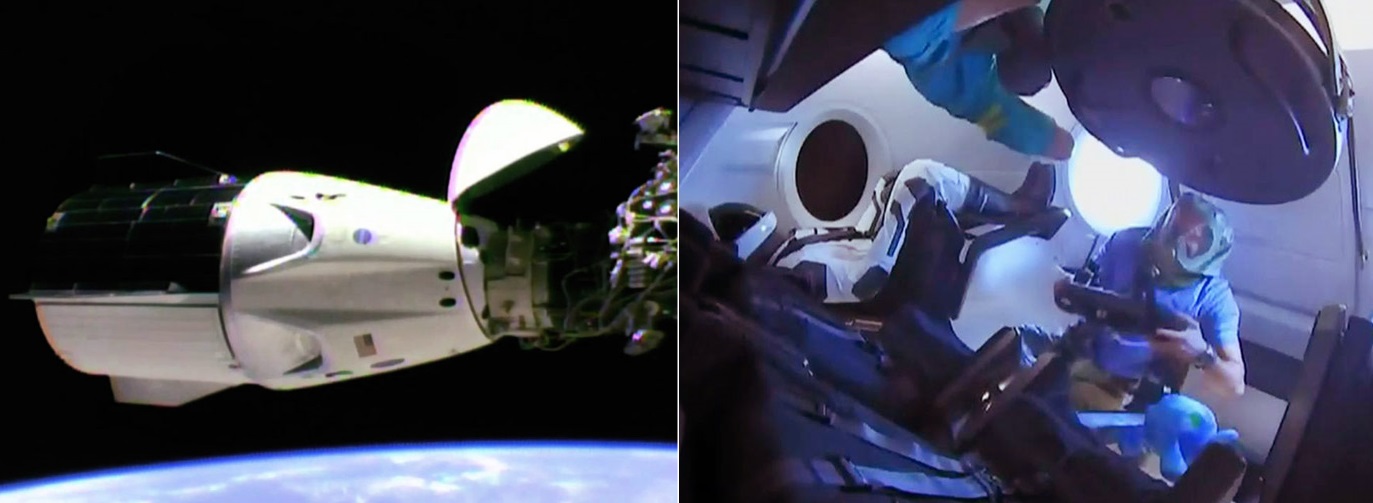SpaceX’s Crew Dragon capsule has safely splashed down in the Atlantic, making it the first privately built crew-capable spacecraft ever to complete a mission to the International Space Station. It’s one of several firsts SpaceX plans this year, but Boeing is hot on its heels with a crew demonstrator of its own — and of course the real test is doing the same thing with astronauts aboard.
This mission, Demo-1, had SpaceX showing that its Crew Dragon capsule, an evolution of the cargo-bearing Dragon that has made numerous ISS deliveries, was complete and ready to take on its eponymous crew.
It took off early in the morning of March 2 (still March 1 on the West coast), circled the Earth 18 times, and eventually came to a stop (relatively speaking, of course) adjacent to the ISS, after which it approached and docked with the new International Docking Adapter. The 400 pounds of supplies were emptied, but the “anthropomorphic test device” known as Ripley — basically a space crash test dummy — stayed in her seat on board.
(It’s also worth noting that the Falcon 9 first stage that took the capsule to the edge of the atmosphere landed autonomously on a drone ship.)
Five days later — very early this morning — the craft disengaged from the ISS and began the process of deorbiting. It landed on schedule at about 8:45 in the morning Eastern time.
It’s a huge validation of NASA’s Commercial Crew Program, and of course a triumph for SpaceX, which not only made and launched a functioning crew spacecraft, but did so before its rival Boeing. That said, it isn’t winner take all — the two spacecraft could very well exist in healthy competition as crewed missions to space become more and more common.
Expect to see a report on the mission soon after SpaceX and NASA have had time to debrief and examine the craft (and Ripley).
from TechCrunch https://ift.tt/2Tthvxd


No comments:
Post a Comment